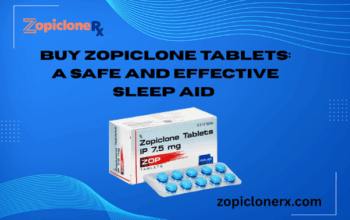Vitamins are essential to our daily diets, as vitamins play many roles in our mental and physical health. For example, vitamins help support strong bones, a healthy immune system, keep your nerves healthy, and much more. Although vitamins are vital to our lives, nearly 92% of the population suffers from vitamin deficiency, according to the Dietary Reference Intakes. If you show symptoms of a vitamin deficiency, your doctor might advise you to be tested. If Medicare is your health insurance, keep reading to see how the different parts of Medicarewill cover a vitamin deficiency panel.
Original Medicare
Medicare is health insurance for America’s senior citizens 65 years and older and others who qualify before 65 due to certain disabilities. Medicare Part A covers inpatient services, and Part B covers outpatient care. Both parts cover a different set of benefits, but they both have in common that they only cover medically necessary services that treat or diagnose an illness, injury, or disease. Medicare will deny the claim if you receive a non-medically necessary service.
Medicare Part A
Part A covers inpatient hospital services, such as your room, meals, and lab services. When you are an inpatient in the hospital for three or more consecutive days, you are considered an inpatient. If your doctor ordered a vitamin deficiency panel while you are an inpatient, Medicare Part A would cover it.
However, know that you will be responsible for the Part A deductible if you don’t have insurance to cover it. In 2022, the Part A deductible is $1,556 per 60-day benefit period. After you pay the Part A deductible, Part A will fully cover your medically necessary inpatient services for the next 60 days.
Medicare Part B
Medicare Part B covers outpatient services, such as doctor’s visits, durable medical equipment, select vaccinations, and more. Medicare Part B will cover a vitamin test, such as a Vitamin D assay test, if medically necessary.
For example, you visit the doctor because your hair and nails are brittle, you have mouth ulcers, and you are experiencing dandruff. Since these symptoms are signs of vitamin deficiency, your doctor may order your vitamin count to be checked. If so, Medicare Part B would cover the Medicare-approved costs.
Now, let’s say you embark on a new fitness journey and want to get your vitamins checked for holistic reasons. If you walk into a clinic or doctor’s office and request this type of panel, Medicare Part B would not cover the services since it’s not medically necessary. So, Part B will only cover vitamin deficiency testing whenever a doctor orders it, and it’s deemed and coded as medically necessary.
Medicare Part D
Original Medicare does not cover prescription drugs. Due to this, beneficiaries will purchase a Part D drug plan from a private insurance carrier. Every Part D plan has its own formulary, which is a list of the specific medications that the plan covers. Part D plans are required to offer two drugs in each therapeutic class. However, Part D plans are not required to cover vitamins or supplements. You will need to check your plan’s formulary to know for sure if your plan will cover a specific vitamin or not.
With that said, your doctor may prescribe you to take a type of injection, such as a B-12 injection, to help with your vitamin deficiency. You will need to refer to your plan’s formulary to know if your plan will cover it. If your plan doesn’t cover an injection, vitamin, or supplement, you will pay the bill’s total cost when you pick it up at the pharmacy.
Additional Medicare plans
Many beneficiaries purchase a Medigap or Medicare Advantage plan from a private insurance carrier since Original Medicare leaves you with out-of-pocket costs. Medigap plans work alongside Original Medicare and pay as secondary insurance. Therefore, if Medicare Part A or Part B covers a vitamin deficiency assay, so would a Medigap plan. If Medicare denies a vitamin panel, your Medigap plan would also reject it.
Medicare Advantage plans work differently compared to Medigap plans. When you enroll in an Advantage plan, you will receive your Parts A, B, and D benefits through the insurance carrier. The carrier will set your cost-sharing amounts, networks, and covered services. Therefore, you will want to check your Advantage plan’s Summary of Benefits to know what your plan will cover regarding vitamin deficiency.
Final point
If you believe you are experiencing a vitamin deficiency, know that Medicare Part A and Part B will cover a vitamin assay whenever it’s considered medically necessary. To learn more about Medicare’s coverage, visit Medicare.gov.




